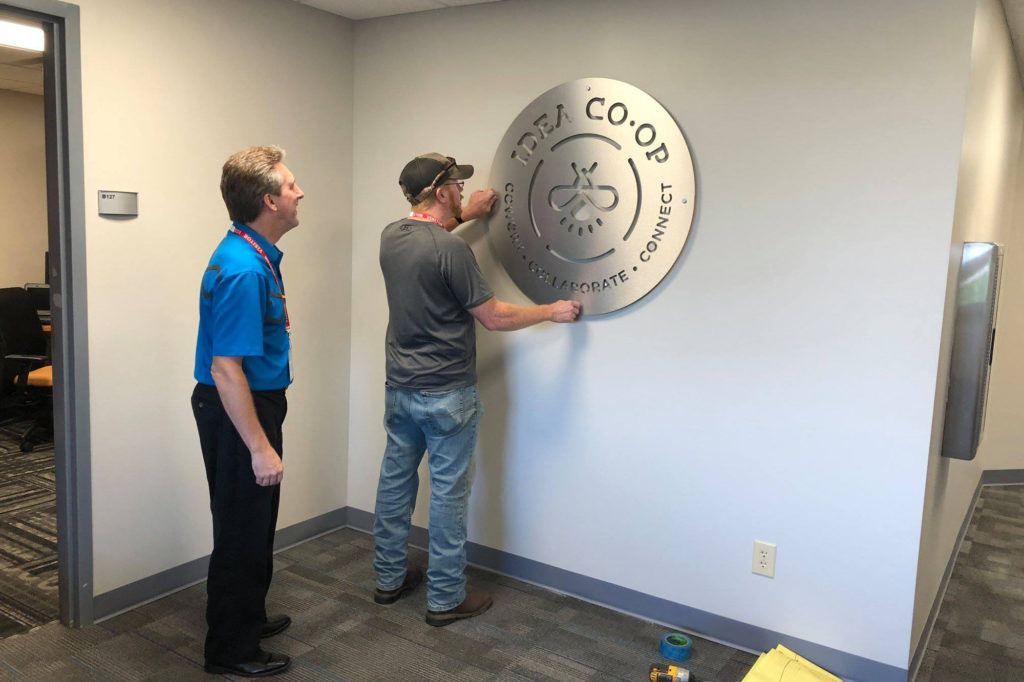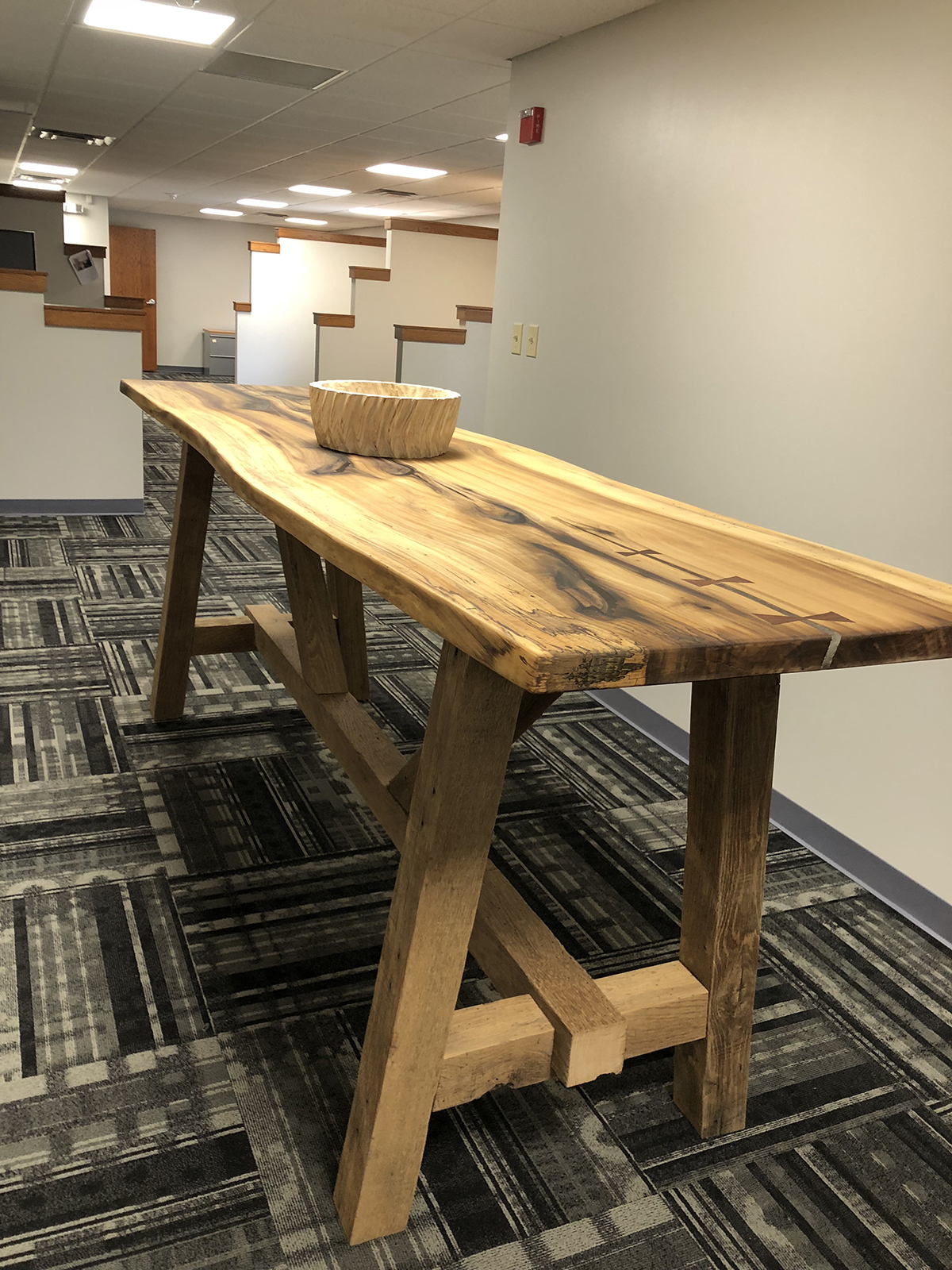
The new coworking space had everything John Mascoe needed for his agri-tech startup: Reasonable price. High-speed internet. Access to cutting-edge technologies for training and product development. And working farmland.
As founder and president of Indiana-based VanCoe Ag Technologies, one of Mascoe’s must-haves was land to demonstrate new methods for boosting soil productivity using underground nutrient delivery systems and sensors to enable farmers to make crop management decisions remotely.
Another essential was broadband.
“Part of my mission has been trying to overcome the barriers of incorporating technologies into agriculture,” said Mascoe, a soil and crop production scientist. “And one of those was…wireless broadband access so that we could collect images from center pivots and irrigation systems, access remote-sensed images from satellites, drones and airplanes, and then transmit them quickly to growers.”
VanCoe Ag Technologies was the first tenant of Idea Co-op, a coworking office and technology campus created by Greenfield, Indiana-based electric cooperative NineStar Connect. It consists of 26 acres of tillable land and 18,000 square feet of available space in a building. Since its January opening, tenants have leased five of nine offices. One Saturday a month, students, ages 7-17, flock to its education center for free coding classes.
“We want to create a forum where high-tech people could connect, collaborate, learn new things, and be around like-minded people,” said Jill Snyder, director of business and economic development at NineStar Connect. “We also want to offer a space where entrepreneurs can launch new ventures.”
Rural communities are looking at coworking spaces as a way to attract and invest in new businesses. The facilities fill certain gaps on rural Main Streets and provide a place for entrepreneurs, freelancers and remote workers to bond.
Greenfield is an Indianapolis suburb, and while a “good-size city,” it lacks suitable facilities for cash-strapped entrepreneurs needing space, tools and technology to test their ideas, said Snyder.
“One of the challenges for people starting up businesses is that traditional office space leasing companies require a three-year lease, and that’s not conducive to a startup,” said Snyder. “Ours is month-to-month, or they can sign up for a year if they want a little bit of a discount.”
And when they outgrow their spaces? The hope is that the company will stay in the area.
“We want to cultivate that high-tech talent, that entrepreneurial talent in the areas we serve,” said Snyder. “We’ve heard a statistic when a company gets to about seven or eight employees, they need to find their own space. And we hope that they will find that space or build in our territory, which creates another new customer that we can serve. The endgame is to spur economic development in our own community.”
Mascoe says his ultimate goal is to create “a hub for ag innovation, implementation, education and rural economic development.” He’s looking forward to using Idea Co-op’s “collision space,” a work area conducive for brainstorming among innovators, and other facilities to accomplish that goal.
“We have a second-to-none classroom and video conferencing and other types of things that are so unique to anywhere across the world actually,” said Mascoe. “And we’re in the middle of a cornfield.”
Idea Co-op’s Hancock County location checked all the boxes for tenant Debra Cochran, who recently signed a lease for Spade Events Co., an event-planning startup. She wanted a Greenfield address at a decent price and access to virtual reality technology to attract more business.
“My heart is in Hancock County, and I’d love to stay here,” said Cochran. “I want to do everything I can to support it.”
Victoria A. Rocha is a staff writer at NRECA.
